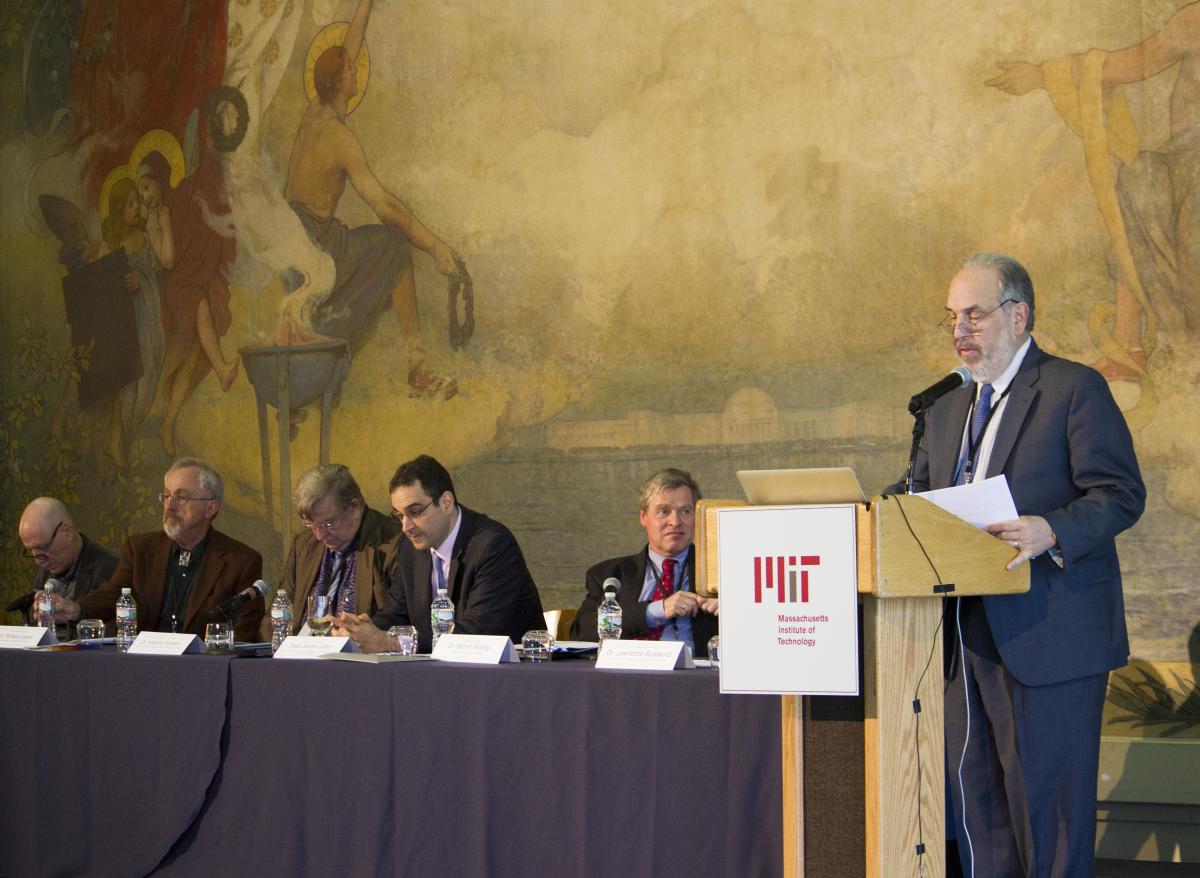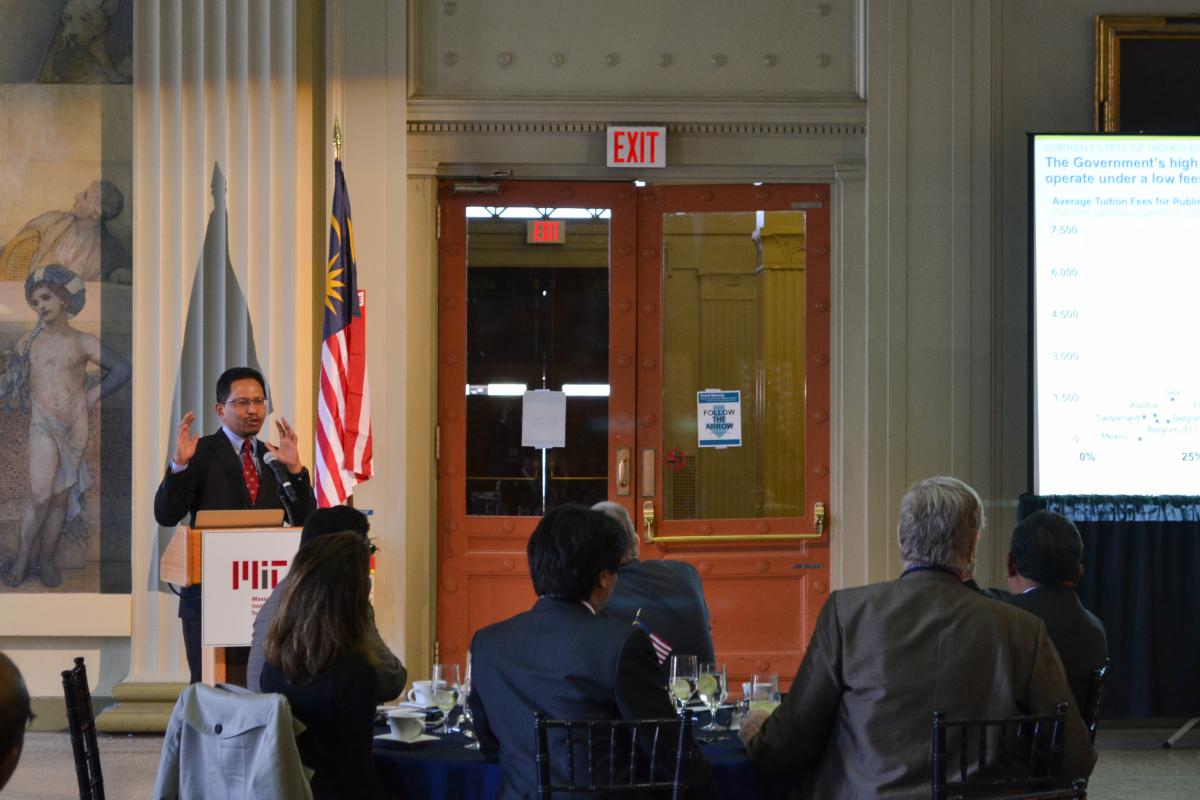

Click here to visit the digital counterpart to the physical exhibition, Female Faces in Sustainable Places.
A multimedia exhibit focusing on the impressive role of women policymakers and social entrepreneurs in Malaysia is on view in SA+P’s Wolk Gallery through the end of the summer.
The exhibition is part of a five-year partnership between MIT and the Universiti Teknologi of Malaysia (UTM) to study development efforts in Malaysia and to create materials to enhance and extend the teaching of sustainable city development in universities across the global South.
With a population of 30 million people, Malaysia is a salient example of a nation whose policies and general populace embrace progressive, democratic values at the same time holding to the principles and teachings of a majority Islamic leadership.
Of the Southeast Asian countries, where a majority of the world’s Muslim population lives, Malaysia has done a great deal to improve the human rights conditions of its people in the past two decades, investing significant resources in higher education, economic development, affordable housing and healthcare. In part because of that, Malaysian women play key roles in formulating and implementing sustainable development policy.
To honor those women and the path-breaking work Malaysia is doing, Female Faces in Sustainable Places: Malaysian Women Promoting Sustainable Development presents a collection of large- and small- format portrait, action and in-situ photographs, alongside interactive video of Malaysian women from different walks of life. The exhibit also includes a variety of physical, auditory and immersive ‘artifacts’ representing the contributions Malaysian women make to both traditional and emerging global economic and social arenas.
The MIT- UTM Malaysia Sustainable Cities Program (MSCP) was initiated and is run by faculty at MIT and UTM with generous support from the Ministry of Education Malaysia. Each year, graduate students in SA+P’s Department of Urban Studies and Planning spend their January Independent Activities Period (IAP) traveling to Johor Baharu, Kuala Lumpur, Putrajaya, Penang, and Kuching to gain understanding of this predominantly Islamic but multicultural society, and especially about the role of women as change agents in Malaysia’s major cities.
This spring, the program is hosting nine International Visiting Scholarsat DUSP-- a diverse group of faculty and professionals from G-77 nations including Cameroon, Nigeria, Egypt, India, China, Pakistan and Malaysia. Before coming to MIT, the Scholars spent five months studying development efforts in Malaysia at UTM, conducting research in collaboration with many of the organizations, agencies and local businesses that are directed or managed by the women featured in Female Faces.
While still in Malaysia in January, the inaugural nine Scholars were joined there by a group of graduate students from DUSP for a three-week IAP practicum with UTM students and faculty. For the exhibit, IAP student groups from 2014 and 2015 have contributed their own, on-the-ground snapshots and reflections of their time in Malaysia.
The Female Faces exhibition is part of the MIT-UTM Malaysia Sustainable Cities Program (MSCP) organized by MIT Professor Larry Susskind, UTM Professor Mohd Hamdan bin Ahmad and Bettina Urcuioli, MSCP Program Manager, with the support of the Community Innovator’s Lab (CoLab) in the MIT Department of Urban Studies and Planning. The exhibition was produced by Leslie Tuttle, key photographer with the assistance of DUSP student videographers/photogarphers Ellen Chen and Libbie Cohen. DUSP students in the 2014 and 2015 Malaysia Practicums contributed many of the photographs and text. Exhibit design provided by Peter Agoos (Agoos D-zines), with curatorial assistance from Gary Van Zante (Director of Wolk Gallery), Leslie Tuttle and Bettina Urcuioli. The exhibit is supported through grants from the Council for the Arts at MIT and the Malaysia Ministry of Education, with additional funding by SA+P, the Committee on Race and Diversity at MIT, and the MSCP. After its appearance at MIT, the exhibition will travel to the Petronas Gallery in the iconic Petronas Towers in Kuala Lumpur.
Because of Malaysia’s progressive policies, many Muslim women from other countries go to Malaysia for their education – one likely reason Malaysia produces more female PhD graduates per capita than almost any other nation.

